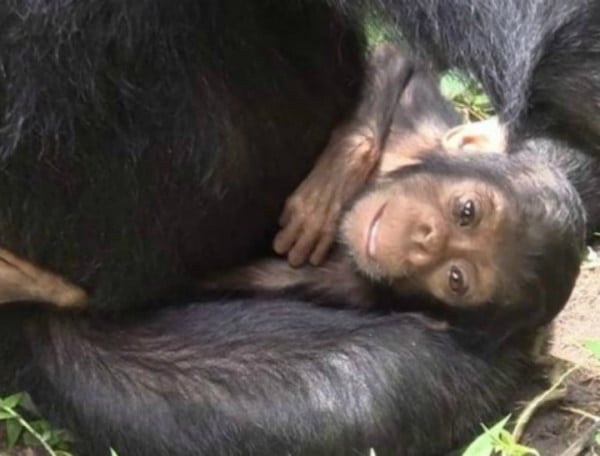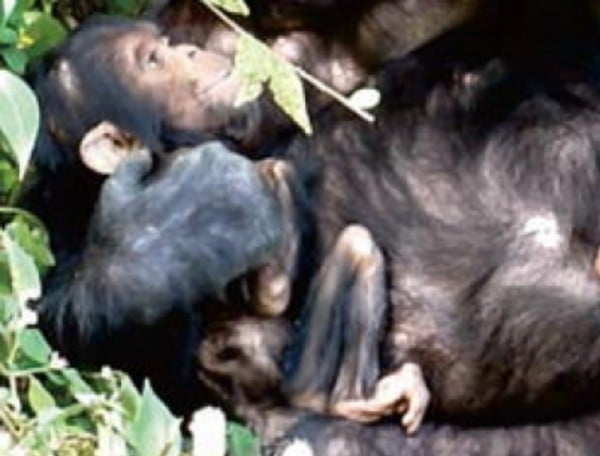
Chimpanzees in the wild have been observed caring for a “severely disabled” infant, according to Japanese researchers who say the behaviour may shed light on the development of human social behaviours.
The infant “exhibited symptoms resembling Down syndrome” yet was able to survive for almost two years, the researchers said in a paper published in the journal Primates.
Disabilities included apparent damage to the female chimpanzee’s spine, a sixth finger on her left hand and an inability to sit up on her own or hold on to her mother.

Associate Professor Michio Nakamura of Kyoto University told The Japan Times the infant also exhibited facial expressions consistent with a mental health issue.

